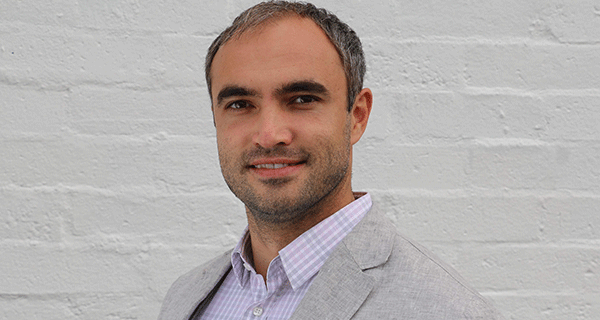Andrey Kudievskiy is an IT executive, serial entrepreneur and CEO at Distillery. He was named one of the 25 Inspiring Entrepreneurs to Watch in 2017 by Inc. Magazine. Follow him [email protected]
Recently, YEC spoke with Kudievskiy about his employee management and company culture experience. His best advice is below.
Look for the “Why”
I don’t really believe in “magic” questions that work for every interview. We really just try to ask “why?” in ways that are focused on trying to understand the potential hire’s reasoning and motivations. The question of “why”matters in all of the areas that should be explored in an interview: technical competence, social ability (including personality fit), discipline and personal responsibility. For example, when we ask a potential developer hire which programming books he or she has read in the past year, no matter the answer, the follow-up question is focused on “why”: “Why did you read those particular books? Why didn’t you read more books?”
If you use too many stock interview questions, you risk not really getting to know a candidate. Candidates can be trained to pass interviews. It’s much harder to be ready with an impromptu response explaining the “why” behind the initial answer.
Trust Your Team and Share Your Vision
The equality, freedom and trust that we all experience on a day-to-day basis, no matter our rank or role makes our culture unique. As CEO, I’m readily accessible to every employee at every level. Information about how we’re doing and where we’re headed is shared widely and regularly, both in monthly all-hands meetings and weekly meetings at our Los Angeles HQ. About two years ago, we stopped tracking employee hours, making 100 percent of the team salaried. We simply trust that everyone is doing the best job they possibly can. It’s had a huge impact on the company culture, creating an atmosphere where our people feel trusted, respected and free to conduct their workdays in whatever way makes sense for their lives. In addition, the way we talk to each other every day shows that we genuinely regard each other as equals.
Not only do we encourage ideas and feedback from all levels of the team, but we quite literally show our respect in the language we use. Many of our employees are native Russian speakers. In Russian, you use a different form of speech when you’re talking to an equal versus a superior. At Distillery, nobody uses the superior form. There’s no need, because we’re all equals.
In addition, we really do have a shared vision across the entire company. Given the way our company started – a group of like-minded people of similar ages living in the same town, sharing similar ideals and educations – we have always been on the same wavelength. As we’ve grown and added more people, we’ve focused on making sure new hires share that vision. Working for a company that’s united by one primary shared goal – being the best professionals we can be and working together to create something truly great – creates a unique atmosphere.

Plan Non-Competitive Outings
We simply ask for our team’s input and feedback. When we’re preparing activities that will involve the whole team, we work together to define some initial options that are likely to be enjoyable for the majority of people. In all options, we try to keep the planned activities fun and non-competitive. We also stay mindful of the likely outcomes: What kinds of memories will our people leave with? What will the benefits be for the team? What will the value be to the company?
Once we’ve settled on options that fit the bill, we outline each option in a Google spreadsheet and have people vote on their preferences. We also ask for their overall feedback. We may correct or change some of our initial decisions based on that employee feedback. Ultimately, we strive to make sure that whatever option we choose will be the one that makes the majority of the team happiest. We also make sure that any awards or prizes are kept as neutral as possible, recognizing people in meaningful ways that don’t incite jealousy or competition.

Gather as Much Feedback as Possible
Stay focused on feedback. You want to get feedback as frequently as you can, and to make sure that the feedback is coming from several different places: from the new hires themselves, HR, colleagues, mentors and clients. The more information you have, the better you’ll understand how everyone is doing and what they may need to do better. That information becomes actionable, helping you understand where you have to invest training and attention or make changes. In addition, establishing personal mentoring relationships early in someone’s onboarding process can have a massive impact. However, mentors must be genuinely interested in being mentors. While forced mentorship doesn’t work at all, willing mentorship works wonders for both parties. So you want to identify a pool of willing mentors who themselves seek to grow professionally.
Honestly, there’s no truly quick or easy way to invest in your company culture. Culture is a consequence of how a company actually functions; it can’t be “easily” manufactured. Company culture comes from people’s motivations. What’s the company’s goal? Does everyone share that goal? The goal that creates the foundation for a company’s culture must be something that everyone understands and believes in.
To build a strong company culture, there’s no “easy” way. It’s something that you need to pay attention to regularly, helping to drive it forward. Helping to create a conversation around a shared goal is a start – but it’s only a start.














